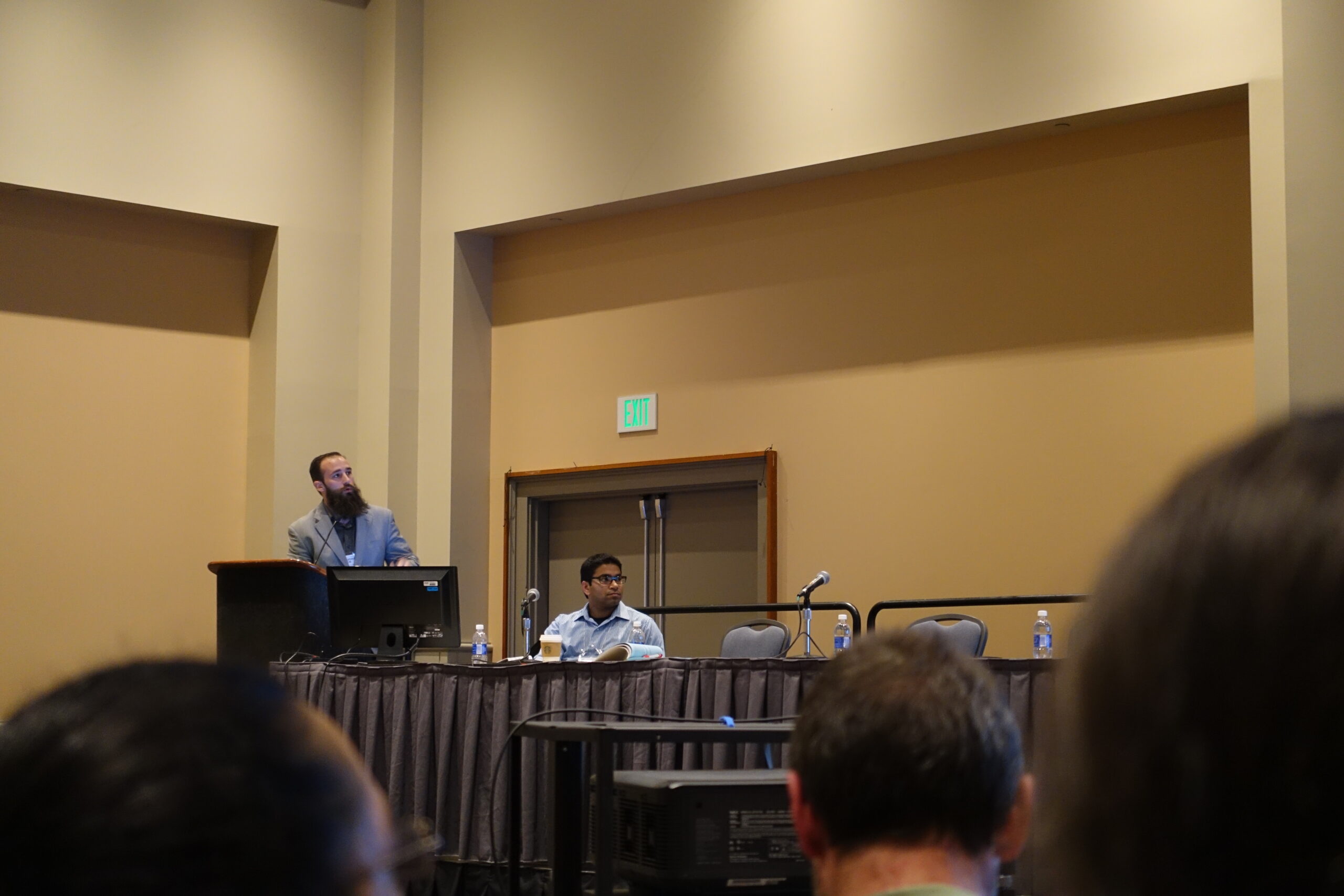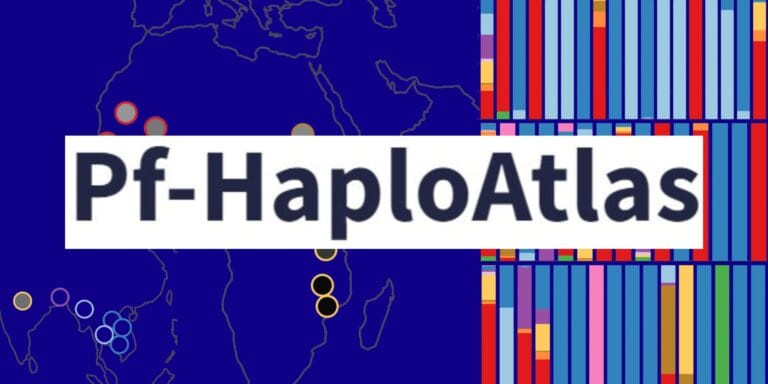
We’re looking forward to this year’s American Society of Tropical Medicine & Hygiene (ASTMH) Annual Meeting. This five-day conference is a great opportunity to meet colleagues and discuss the latest developments in the field.
Below is a list of a few sessions of interest which we are planning to attend – some of these involve MalariaGEN and our partners.
Symposia
- Session 48: Inaugural Alan J. Magill Malaria Eradication Symposium
Monday, 14 November, 4:00-5:45pm
Marriott – Atrium A
This symposium is introduced for the first time to the meeting in order to honour the life and work of Professor Alan Magill, ASTMH Past President and previous director at the Bill & Melinda Gates Foundation. Led by Chris Plowe, University of Maryland School of Medicine, USA, and co-chaired by Regina Rabinovich, Harvard T.H. Chan School of Public Health, USA, this symposium will provide a common forum to discuss cutting-edge science that may transform malaria eradication strategies.
- Session 76: How Can We Use the Tools of Genomics and Evolution to Study and Control Malaria?
Tuesday, 15 November, 10:15am-12:00pm
Marriott – Room A602
This symposium is a forum for discussion about translating genomics and evolutionary tools to study and control malaria, and how the results can be applied directly to the field. Symposium organiser Jane Carlton from the New York University, USA, and co-chair Ananias Escalante from Temple University, USA, are among the four presenters of talks about how genomic approaches allow us to better understand the evolution of phenotypes, such as resistance to antimalarial drugs in the parasite or insecticide resistance in the vector.
- Session 95: Current Challenges and Opportunities for Treating and Eliminating ACT-Resistant Plasmodium falciparum Malaria in the Greater Mekong Subregion
Tuesday, 15 November, 4:00-5:45pm
Marriott – Marquis A
Due to high failure rates of artemisinin combination therapy treatment of Plasmodium falciparum malaria in the Greater Mekong Subregion, and the incredible diversity of contemporary Anopheles species in Cambodia, eliminating the parasites will be more challenging than anticipated. Rick Fairhurst, National Institutes of Health, USA, and Arjen Dondorp, the Mahidol-Oxford Research Institute, Thailand, will lead through this highly interesting session, which will look at the current challenges, and opportunities, for treating the disease in the region.
- Session 148: Novel Phenotypic and Genotypic Markers of Piperaquine Resistance and Dihydroartemisinin-Piperaquine Treatment Failure in Cambodia
Wednesday, 16 November, 4:00-5:45pm
Marriott – Imperial B
Led by Rick Fairhurst from the National Institute of Allergy and Infectious Diseases, USA, and co-chaired by Didier Ménard from the Institut Pasteur du Cambodge, Cambodia, this symposium will investigate the increasing failure of dihydroartemisinin-piperaquine (DHA-PPQ), the current antimalarial frontline artemisinin combination therapy (ACT) used in many Southeast Asian countries. Speakers include Rick Fairhurst, Benoit Witkowski, Institut Pasteur du Cambodge, Cambodia, David A. Fiddock, Columbia University New York, USA, and our own Roberto Amato who will present findings on genetic markers associated with DHA-PPQ failure in Plasmodium falciparum malaria.
- Session 172: Key Knowledge Gaps Concerning the Impact of Interventions on Malaria Transmission
Thursday, 17 November, 10:15am-12:00pm
Marriott – Marquis A
Organised by Dyann Wirth from Harvard T.H. Chan School of Public Health, USA and co-chaired by Deirdre A. Joy from the National Institutes of Health, USA, this symposium is set to address the key knowledge gaps concerning the impact of the main malaria transmission interventions tools: insecticides for vector control, drugs for treatment and prevention and, most recently, the potential availability of a vaccine against the disease. One main challenge resulting from these intervention methods are the consequences of evolution that change both host (vector and human), and parasite responses or populations upon which the interventions are directed, making it difficult to know which transmission reduction strategies can be used and when. The presenters are Hillary Ranson, Liverpool School of Tropical Medicine, UK, Christian Ockenhouse, PATH Malaria Vaccine Initiative, USA, Sarah K. Volkman, Harvard T.H. Chan School of Public Health, USA, Kumar Udhayakumar, Centers for Disease Control and Prevention, USA, and Philip A. Eckhoff, Institute for Disease Modeling, USA.
Scientific sessions
- Session 91: Malaria: Elimination Strategies and New Tools
Tuesday, 15 November, 1:45-3:30pm
Marriott – Room A703/A704
Many areas worldwide are now in transition from malaria control to elimination – new, targeted intervention strategies are a crucial step in this process. Talks in this session focus on different tools used pre-elimination, and also to estimate the level of confidence post-elimination once the malaria-free status has been declared. Researchers from several countries across Africa and Southeast Asia present their findings from analyses of different tools and strategies. The session is led by Kim Lindblade, Centers for Disease Control and Prevention (CDC) USA, and Julia Mwesigwa, the Medical Research Unit The Gambia.
- Session 156: Malaria: Parasite, Vector and Host Genomics
Wednesday, 16 November, 4:00-5:45pm
Marriott – Room A703/A704
As part of this varied session, Gavin Band will be giving a presentation: “Genome-wide association study of susceptibility to severe malaria in 17,500 individuals from Africa, Asia and Oceania.” In his talk, he’ll give an insight into our large genome-wide association (GWAS) study of 8,931 cases with severe malaria and 8,703 controls from 11 malaria-endemic populations, with replication in a further 15,000 individuals. Gavin will explain the development of a methodology to test for association with severe malaria subphenotypes, and identify and replicate a novel locus on chromosome 6 associated with increased risk of cerebral malaria.
Nick Harding will be sharing the latest from the Anopheles gambiae 1000 Genomes (Ag1000G) project, describing a genome-wide scan for signatures of recent selection in mosquito populations sampled from 8 African countries in his talk “A genome-wide analysis of recent selection in African malaria vector populations“. In this analysis, he presents results from a number of statistical methods, including tests based on haplotype length (iHS, XP-EHH), haplotype diversity (H12), allele frequency spectra (SweeD, delta Tajima’s D) and population differentiation (FST, XP-CLR) – a combination of methods which allows us to identify selective events that are specific to a single population or shared across multiple populations, to identify both hard and soft selective sweeps, and to find selection events from recent times and the more distant past.
- Session 109: American Committee of Molecular, Cellular and Immunoparasitology (ACMCIP): Malaria – Molecular Biology
Wednesday, 16 November, 8:00-9:45am
Marriott – Marquis B
Progress in treating and eliminating malaria is decelerated by the recent emergence of drug and insecticide resistance, therefore, more robust genomic tools are needed to identify and validate new anti-malarial treatments more rapidly. As part of this session, co-chair Cristina Ariani will give her talk “Whole Genome Sequencing of Plasmodium falciparum Malaria Parasites from Dried Blood Spots: Gateway to High-Resolution Genomic Surveillance” in which she’ll describe a method for generating Plasmodium falciparum whole genome sequence data from dried blood spots (DBS). Especially in rural settings with minimal resources and limited storage capacity, taking venous blood samples can be particularly challenging, whereas this technique merely requires a finger prick blood spot on filter paper – a simple collection method that is better tolerated by patients as well.
- Session 161: Mosquitoes: Insecticide Resistance and Control
Thursday, 17 November, 8:00-9:45am
Marriott – Marquis A
As part of this varied session, Alistair Miles will speak about “The emergence and spread of insecticide resistance mutations in Anopheles gambiae and Anopheles coluzzii: insights from deep whole-genome sequencing of natural populations.” During his talk he will present results from analysing haplotype data from the Anopheles gambiae 1000 genomes project to discover new mutations potentially linked with insecticide resistance. The data was used to analyse the origin, distribution and movement of resistance mutations in populations spanning continental Africa. These results prove that insecticide resistance is indeed a serious challenge to malaria elimination in Africa, as they show the mutations have to capacity to spread easily throughout vector populations and they can arise multiple times in different locations.


